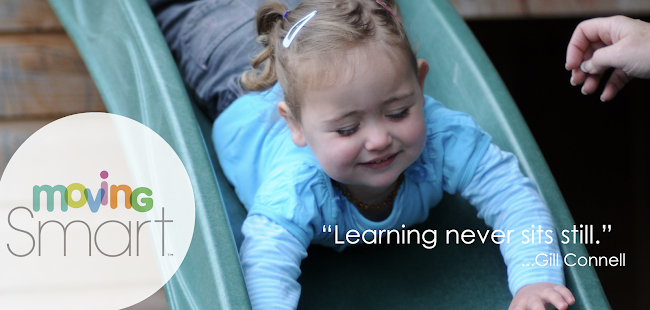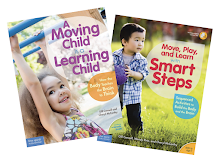HAPPY
ENDINGS
The other day, my
granddaughter had a sleepover and we were playing together for most of the
afternoon. I had to jump on a quick conference call so I stepped away for a few
minutes, leaving her happily playing princess in the living room.
When I came back I asked her what had happened while I was gone. But she didn't answer me.
I asked again. Still no answer.
And then I
realized she wasn't in my living room any more. In that short time she had
transported herself to a world she created all for herself... a world called
play.
There are essential
bodies of research on the subject of play. (If you
want to read more on the topic, I've listed a few of my favorites below.) But in a nutshell, the research adds up to one simple,
organic, and time-honored truth. Play is
the most important thing a child can do to expand her mind, body, and sense of
self because play gets the body up
and moving and the imagination out and exploring.
When a child enters into a deep state of
play, she's in charge of what's real and what's important. Time stands still as she makes her own
discoveries and draws her own conclusions about things. And in those powerful
moments of creation and decision-making she
is laying down the foundations for all future learning by figuring out for herself how she
learns best.
It's no wonder my
little four year old wasn't hearing a word I said. For children deep in play,
the reality of our world melts away in favor of their own, far more vibrant,
and yes, REAL, reality. And anything that tries to intrude on that (like nosy
grannies) gets filtered out.
In my view, we should strive to respect play as an essential part of growing up by giving children opportunities to enter into deep play as much as possible and for as
long as possible. That
said, time does not always stand still for grown-ups, and sometimes it's necessary
to interrupt or stop the play. But if you've ever spent time with playful
little ones, you know that can create a fuss. And of course, the more deeply they're
engrossed in what they're doing, the bigger the fuss.
Now, I'll admit
I've never made a scientific study of it, but over the years, I have found some
strategies work better than others. So, in the hope of helping you navigate the tantrum-filled
waters of "It's time to stop," I thought I'd share some of my favorite
ways to create happy endings...
Distraction
Strictly
speaking, I find this strategy bit of a cheat and I'm always left feeling a bit
guilty about it, but it does work most of the time.
Have something
you know your child likes at the ready like a favorite book or toy. Or create
your own transitional ritual. For instance, I
keep a magic wand in the closet. We call it Magic-Magic Wand. When I sense we
need to change things up, I bring out the wand and we cast our own magic
spell. And sure enough, Magic-Magic always has a new, fun idea for us to play!
GRANNY &
CAITLIN CAST A SPELL...
Magic-Magic Wand
so true.
What's the next fun
thing to do?
MAGIC-MAGIC WAND
RESPONDS...
Hug three times
and clap your hands.
The fun will
always be so grand,
When you FILL
IN THE BLANK.
When my granddaughter
sees Magic-Magic Wand, she can't wait to see what's next. (And I can't wait for
my three hugs!)
Whatever your solution, chances are a few minutes of distraction are often all you need to transition a child from one activity to the next.
Whatever your solution, chances are a few minutes of distraction are often all you need to transition a child from one activity to the next.
In other words, when it comes to kids, always have some fun up your sleeve.
Preparedness
When playing a
game with one or more children, be sure to set up the ground rules for STOPPING the play BEFORE you begin. For younger children, set an egg timer. When the
bell goes off, the game is done. Once they're familiar with the egg timer, have
them set it themselves. (And as a bonus, egg timers help little ones begin to
understand the passage of time. If you want to read more about how children
learn about time, hop over to our blog post THE IMPATIENT ZONE.)
For older
children, establish the number of turns they each get (and have them count the
turns just for the fun and learning of it).
When you're
getting close to the end of the game, be sure to prepare them that the end is
coming soon. "Time will be up soon" or "Two more turns
each," is often enough to lessen the disappointment of a fun game coming
to an end.
When you can, offer the child choices of what to do after the fun is done. For little ones, it's often best to offer just a couple of options. "When we finish our game, you can have a snack or we can read a story. Which would you like to do?" Be sure to honor their choice.
For older children,
it's always great to make them think stopping is their idea. Set it up in their
minds in simple ways that get them thinking. "Once we finish our game, I
wonder what we'll do after this?" Discuss the options and make sure it's a
conversation and collaboration between the two of you. After all, choice often
involves compromising with others.
Play should
always be fun and end on a high note so the child will want to play again the
next time. But once in a while, a game or activity will go on too long and
start to drag. If you're sensing this, create a "big finish" to the
game.
Kids will follow
your emotional lead so ramp up the energy level with your voice and actions.
Add new intensity to the last minutes of the game. Speed it up. Add a silly
twist. Create a big finish! "Ta-Da!" "Hooray!" "You
Did It!"
Celebration
Be sure to
celebrate the play once it's done. Encourage the child to retell the tales of
her play. Listen intently. Ask questions. Explore it fully with her. Have her
re-enact it for you or draw a picture of what happened. In other words,
celebrate the play! And then help her envision what she might do the next time.
"I wonder what happens next..." or "I wonder what would happen
if..."
Not only will post-play
celebrations reinforce the concepts she explored during play, your interest in
her play will encourage her to play and explore even more.
And that, in my
view, is the very best ending of all.
SELECTED
READING ON THE POWER OF PLAY...
PLAY: How it Shapes the Brain, Opens the Imagination, and Invigorates the Soul by Stuart Brown, M.D.
THE POWER OF PLAY: Learning What Comes Naturally by David
Elkind, Ph.D.
PLAYFUL PARENTING by Lawrence J. Cohen, Ph.D.
A CHILD'S WORK – The Importance of Fantasy Play by Vivien
Gussen Paley
THE ART OF ROUGHHOUSING by Anthony T. DeBenedet, M.D. and
Lawrence J. Cohen, Ph.D.
If you'd like to read more about playful parenting, you might like...
If you'd like to read more about playful parenting, you might like...
 |
| Parents Make the Best Playmates |



















Congrats on the Book coming out later this year! It will be eagerly anticipated for sure! Excellent post on children's deep play world and how to respectfully transition them out when needed. Cheers!
ReplyDeleteThanks so much Jeanne for your lovely comments. We cant wait for the book to come out and feel inspired that there are many teachers who also understand the importance of respecting children in their learning. Best wishes - Gill & Cheryl
DeleteFall won't come soon enough! Can't wait to read this gem.
ReplyDeleteThanks for the practical advice--something I can't get enough of now that I'm Mom of two little ones! I thought I knew something about play.....until I tried navigating these shores. It's so good to see it through new eyes. Looking forward to reading more of your work!
ReplyDeleteNice post... I like your blog and thank you for sharing with us.
ReplyDeletenew born baby gifts
Play is a very important aspect in a child's life where children get to express themselves and parents get to learn and see how their children perceive things all around them. We should not see play as a waste of time but instead see it as a platform for children to pour out their creative juices and be themselves. Sure they will create an unsightly mess with all of their storage bins and teddies, but it will all be well worth it.
ReplyDelete